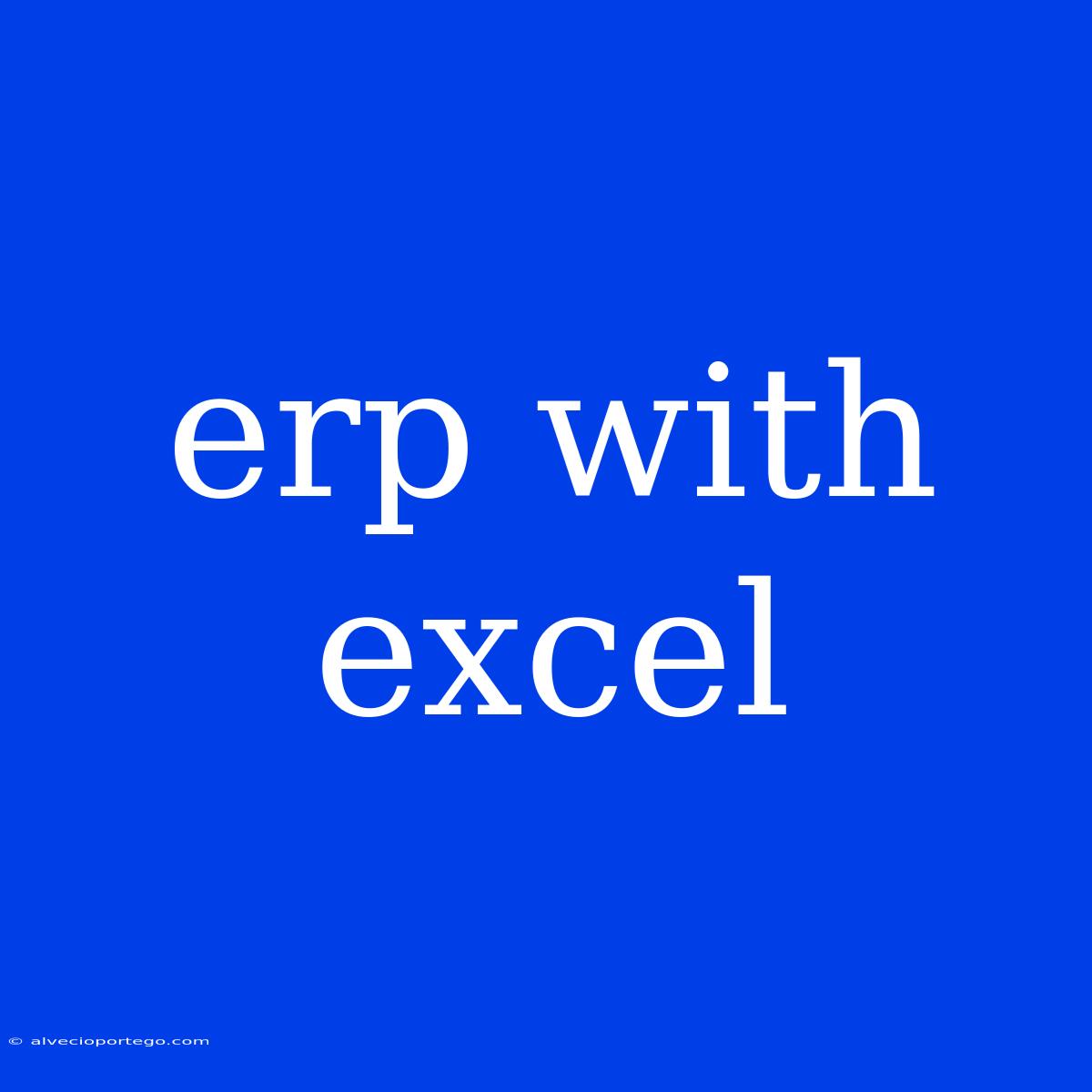ERP with Excel: A Feasible Solution for Small Businesses?
While powerful enterprise resource planning (ERP) software dominates the market, there's a growing number of small businesses turning to Excel to manage their operations. This seemingly simple spreadsheet program can be surprisingly effective for smaller companies with basic needs. But is it truly a viable alternative to dedicated ERP systems?
Here's a breakdown of the pros and cons of using Excel as a makeshift ERP:
Advantages of using Excel for ERP:
- Accessibility & Cost-Effectiveness: Excel is readily available, affordable, and familiar to most users. There's no need for expensive software licenses or extensive training.
- Customization & Flexibility: Excel offers a high degree of customization. You can create custom formulas, pivot tables, and charts to analyze data and tailor workflows to your specific needs.
- Simple Data Management: Basic data management like inventory tracking, customer information, and sales records can be easily handled within Excel's spreadsheet format.
Disadvantages of using Excel for ERP:
- Limited Functionality: Excel lacks the sophisticated features of dedicated ERP systems, including real-time data updates, integrated modules, advanced reporting capabilities, and robust security measures.
- Scalability Issues: Excel's functionality can become overwhelmed as your business grows and data volumes increase. You might encounter performance issues or find it difficult to manage complex workflows.
- Security Concerns: Excel spreadsheets can be prone to accidental data loss or corruption, especially if they're not properly managed. Data security can also be a concern if you're not using password protection or other security measures.
- Integration Challenges: Integrating Excel with other business systems like accounting software or online payment gateways can be challenging and require custom solutions.
When Excel might be a good choice:
- Start-up Businesses: For new companies with limited resources and simple operations, Excel can provide a cost-effective way to manage basic business processes.
- Small Businesses with Minimal Needs: If your company has a small team, simple processes, and manageable data volumes, Excel could be sufficient for basic operational management.
- As a Supplementary Tool: Even if you have a dedicated ERP system, Excel can be used as a valuable tool for specific tasks like creating reports, analyzing data, or managing smaller projects.
When Excel is not suitable:
- Businesses with complex processes: If your company involves intricate workflows, multiple departments, or large data sets, Excel will not be able to handle the complexity.
- Businesses with high security requirements: Excel lacks the robust security features of dedicated ERP systems, making it unsuitable for organizations dealing with sensitive information.
- Businesses that need real-time data and automation: Excel is not designed for real-time data updates or automated processes, which are essential for many modern businesses.
Conclusion:
Excel can be a viable solution for some small businesses with basic needs. However, it's crucial to understand the limitations of using a spreadsheet program as an ERP system. As your business grows and its needs become more complex, you may need to consider investing in a dedicated ERP solution for optimal efficiency, scalability, and security.

